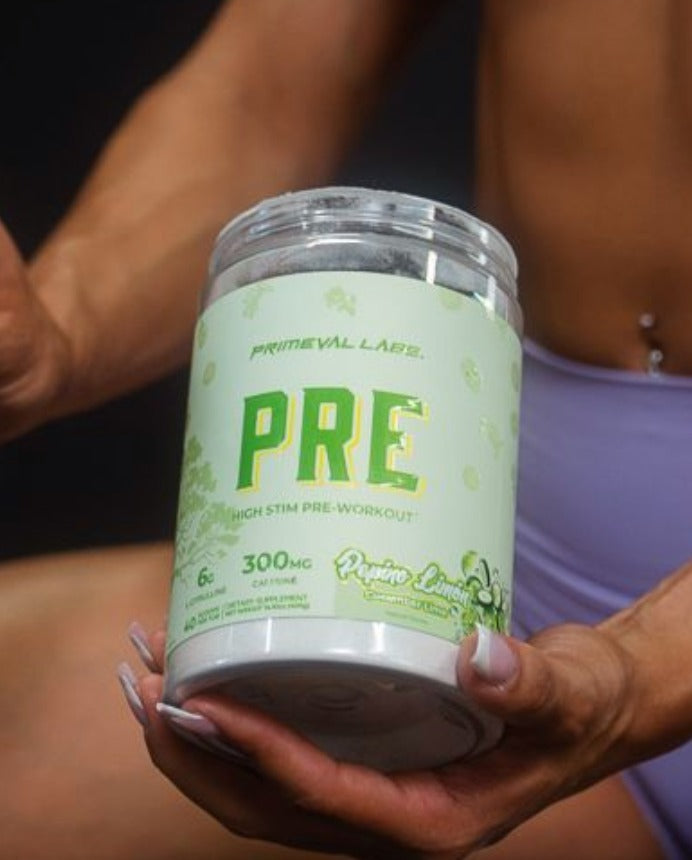It’s bound to happen.
You’re at a party, and there are all sorts of cakes, cookies, ice cream, pastries, and petit-fours. You’re only human after all, and there’s only so much willpower one human being can muster.
You’ve been diligent all week with your diet, but you’ve reached your breaking point.
You decide to have a “small” piece of cake with a “small” scoop of ice cream because the birthday girl says you need to have some. Then, a little later on, you get the munchies and decide to indulge in two of Grandma Susie’s homemade chocolate chip cookies (and boy are they delicious).
Finally, just before saying farewell, you top it off with a cupcake for the road.
You get home to settle in for the evening and feel absolutely awful. The sugar high from a few hours ago has worn off, and you realize you’ve completely blown your diet (along with your eating habits) for the day.
This scenario is all too common amongst dieters.
But, it’s not the end of the world, and it certainly won’t spell certain doom for your weight loss efforts.
However…
It may take you a few extra days of dieting to work off the “damage”, but it’s nothing a little hard work and strict nutrition can’t overcome.
If this scenario sounds all too familiar, sit back, take a deep breath, and read on how to pull off a successful cheat.
Stay on Track with Pyretic
Pyretic Black is a scientifically-formulated thermogenic that helps suppress appetite and support weight loss.

But first, let’s define what does and does not constitute a “cheat”.
What is “Cheating”?
“Cheating” for most people is having a meal that isn’t quite in line with their calorie limits or nutrition plan, and not really giving a flip regarding its calorie or macro contents.
“Cheating” is not having a blow-out meal once a day everyday of the week. If you’re doing this, that’s not “cheating”...that’s your diet.
Cheat meals really should be viewed as planned indulgences that serve as a reward for your diligent efforts in diet and exercise for the week.
Cheat meals can also help break up the monotony of dieting, which can improve mood and compliance during your fat loss journey.
Do’s and Don’ts of Cheating on Your Diet
When coming off of a big splurge or cheat day on your diet, there are a few things that you absolutely NOT do the day after:
Don’t Starve Yourself
Withholding food from yourself as a means of “punishment” for splurging on your diet is not the answer. Many people jump to this idea as a way to force their body to lose the weight they just “gained” from their cheat day.
This is bad for two reasons. First, eating too little can eventually stunt your metabolism and make it harder to lose weight down the road. Second, getting into a cycle of binging and then starving yourself as punishment creates and unhealthy relationship with food and can lead to a number of eating disorders.
Take your cheat day as a once off occasion and move on with a resolve to not let it happen again.
Don’t Assume Everything Is Over
Just because you had a cheat day, does NOT mean all of your hard work has gone to waste. After all, food is one of life’s greatest pleasures!One day of splurging will not ruin the previous days, weeks, or months work you’ve been doing. Our bodies are highly efficient and complex machines. Sure, we like to think of our daily caloric intake as calories in, calories out, but our bodies don’t work on such a rigid 24-hour metabolic clock.
Weight loss is governed by your caloric intake and output over a span of time, not isolated 24 hour increments. Get right back on track the day after your splurge and resume your normal diet and your weight loss will continue on!
Hydrate!
Packaged foods and desserts are notoriously high in fat, sugar and sodium. Couple that with the fact that you probably weren’t drinking enough water during the party and the end result is your body holding onto extra water and giving you a puffy or bloated feeling.
Making sure that you take in adequate fluids the day after helps flush excess sodium and other nasties from your system that it may be holding on to from the types of food you ate the day prior.
As an additional bonus, staying properly hydrated may help combat feelings of hunger.
Do Erase the “Cheating” Mentality
For starters, we need to eliminate the “cheating” mentality.
When you say that you’re having a “cheat meal”, it can create the idea in many fitness enthusiasts’ minds that there are “good” and “bad” foods. Truth be told, there are no foods that are 100% “bad” (save trans fats).
If you feel that you need to “cheat” on your diet or nutrition plan, that’s a pretty big indication that you’re not happy with your current way of eating.
The first thing we need to do is change the word "cheat" to "indulgence" or “reward.”
This subtle shift in wording can make all the difference in the way we perceive food and may go a long way to preventing the development of potential disordered eating.
Remember, you’re working hard both in the gym and in the kitchen. As such, your hard work should be rewarded, and you should celebrate that work with an indulgent meal.
“Bank” Calories
“Banking” calories is an easy way to enjoy a weekly indulgence without having to worry about fat gain or spillover. You can accomplish this a couple different way.
The first way to “bank” your calories is to simply fast for the first part of the day or consume only protein. By doing this, you’re still supplying your body with valuable amino acids to support muscle recovery and growth, but reserving a large chunk of your daily calories to splurge and enjoy a meal that might not always be in line with your nutrition plan.
Another way to bank calories is to save a little bit each day (100-200 calories) of the week. That way by the end of the week, you have an extra 600-1200 calories of “wiggle room” in your diet to enjoy whatever reward meal you’ve decided to have.
Crush Your Workout
Let’s be real, when we cheat, we tend to crave high carb, lower protein food (pizza, doughnuts, french fries, etc.).
And, carbohydrates are stored in the body as muscle glycogen, which is the preferred fuel used by your muscles during high-intensity training.
What better way to free up glycogen stores in the body than by crushing an intense workout prior to your weekly cheat meal?
Not only will this help you “bank” more calories that can go towards your cheat, but it also depletes glycogen stores. What this means is that the high-carb foods you do eat, will first be put towards replenishing muscle glycogen instead of being stored as fat.
Know Your Boundaries
This brings us to our last point -- set limits and keep your indulgence to a single meal...not an entire weekend, or even a whole day.
Many people make the mistake of assuming that a week of diligent dieting gives them free reign to consume anything and everything in sight on the weekends. Yet, these same people can’t seem to grasp why they’re not losing fat.
Simply put, it’s because you’re cheat day is wiping out the calorie deficit you created throughout the whole week.
When you do decide to have your “reward” for the week, keep it to a single meal.
Plan Ahead
This brings us to our last point of how to successfully cheat on your diet -- know what you want to have for your reward meal.
Most restaurants these days provide a rough estimate for the calories and macros of their meals. By knowing what you want, you can work the meal into your daily nutrition plan and structure the rest of your day’s eating to allow for the calories, so that by day’s end, you’ve had your indulgence and not blown your diet for the day and/or week!
The Bottom Line on Cheating on Your Diet
When it comes to dieting for fat loss, the “cheating” mentality is outdated. You are not “cheating” on your diet. You are rewarding yourself (within reason) for your hard work.
Use the tips outlined above to enjoy your indulgences guilt-free and still be on the path to consistent fat loss!












Leave a comment
This site is protected by hCaptcha and the hCaptcha Privacy Policy and Terms of Service apply.